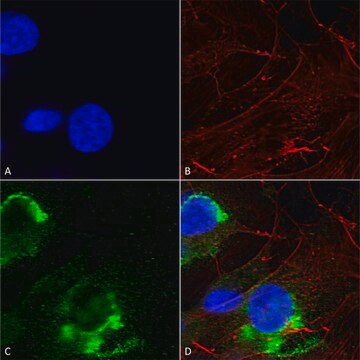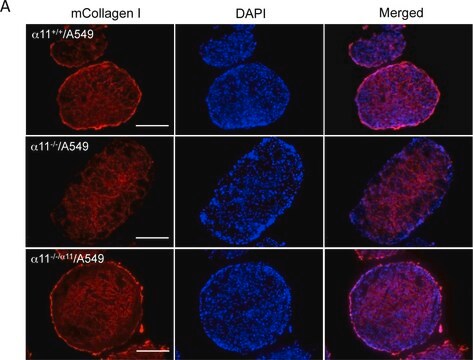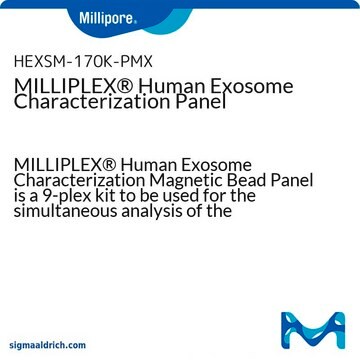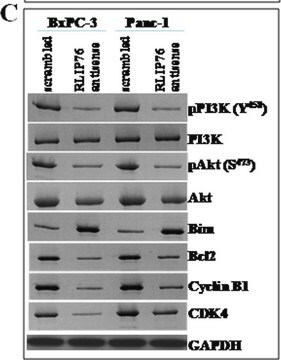MABN40
Anti-LRRK2 Antibody, clone N138/6
clone N138/6, from mouse
Sinónimos:
leucine-rich repeat kinase 2, DARDARIN, augmented in rheumatoid arthritis 17, Parkinson disease (autosomal dominant) 8, Dardarin
About This Item
Productos recomendados
origen biológico
mouse
Nivel de calidad
forma del anticuerpo
purified immunoglobulin
tipo de anticuerpo
primary antibodies
clon
N138/6, monoclonal
reactividad de especies
human
reactividad de especies (predicha por homología)
mouse (based on 100% sequence homology)
técnicas
immunohistochemistry: suitable
western blot: suitable
isotipo
IgG1κ
Nº de acceso NCBI
Nº de acceso UniProt
Condiciones de envío
wet ice
modificación del objetivo postraduccional
unmodified
Información sobre el gen
human ... LRRK2(120892)
Descripción general
Especificidad
Inmunógeno
Aplicación
Calidad
Immunohistochemistry Analysis: 1:300 dilution of this antibody detected LRRK2 on 10 µg of human placenta and Parkinson′s diseased vascular brain tissue.
Descripción de destino
Forma física
Nota de análisis
Human placenta and Parkinson′s diseased vascular brain tissue
Otras notas
¿No encuentra el producto adecuado?
Pruebe nuestro Herramienta de selección de productos.
Código de clase de almacenamiento
12 - Non Combustible Liquids
Clase de riesgo para el agua (WGK)
WGK 1
Punto de inflamabilidad (°F)
Not applicable
Punto de inflamabilidad (°C)
Not applicable
Certificados de análisis (COA)
Busque Certificados de análisis (COA) introduciendo el número de lote del producto. Los números de lote se encuentran en la etiqueta del producto después de las palabras «Lot» o «Batch»
¿Ya tiene este producto?
Encuentre la documentación para los productos que ha comprado recientemente en la Biblioteca de documentos.
Nuestro equipo de científicos tiene experiencia en todas las áreas de investigación: Ciencias de la vida, Ciencia de los materiales, Síntesis química, Cromatografía, Analítica y muchas otras.
Póngase en contacto con el Servicio técnico








